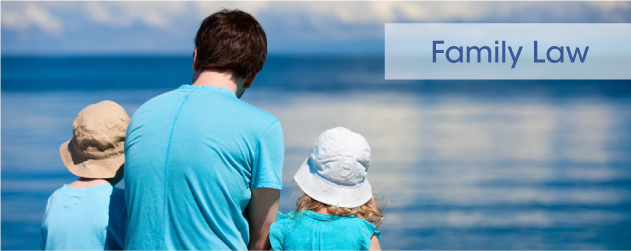Part 9 deals with making parenting orders work.
Head 62: Definitions
This Head provides definitions for the purposes of the Part. The aim of the Part is to provide a route to enforcing orders relating to parenting, particularly custody and access orders.
Head 63: Enforcement orders
The policy intention of this and related Heads are to allow for enforcement of access and of shared custody orders. There is a significant level of non-compliance with access and shared custody orders, and under the law as it stands, the remedy is most likely to be to find the non-compliant party in contempt of court. However, judges are understandably unwilling to go straight to contempt proceedings. This power conferred on the court here is to allow it to intervene, on application by the party whose rights have been breached (subhead (1)), by ordering any of a range of measures in an enforcement order, including that the respondent must allow the applicant compensatory access time, or must lodge a security with the court, or reimburse the applicant for expenses incurred in attempting to exercise custody or access; the court is also given a wide discretion in the directions it may give to the applicant and respondent, and may vary or discharge any custody or access order (subhead (2)). Subhead (3) specifies that the discretion of the court in subhead (2) includes the power to order the parties to engage, together or separately, in a parenting programme or in counselling or mediation insofar as that relates specifically to parenting. Subhead (4) allows the court to refuse to make an order where it considers the denial of custody or access was reasonable, but also allows it to make the enforcement order it considers reasonable – this will allow it to vary or discharge custody / access orders if it considers it appropriate in the circumstances. Subhead (5) allows a parent or guardian to apply for reimbursement of expenses in relation to the failure, without reasonable notice, by the other parent or guardian to exercise his or her custody / access rights. This might arise, for example, if the applicant incurs transport or child-minding costs due to the respondent’s failure. Subhead (6) clarifies that this provision does not affect the existing law on contempt of court. 107
Head 64: Supplementary enforcement orders where enforcement orders are breached
This Head gives the courts discretion to make supplementary orders where an enforcement order is itself breached (subhead (1)), with additional remedies including fining the respondent, requiring the respondent to undertake community service, or, in extreme cases and subject to the additional provisions of subhead (4) and (5), 108 directing a member of An Garda Síochána to assist in enforcing access in accordance with Head 66 (subhead (2)). The provisions of the Criminal Justice (Community Service) Act 1983 apply to any community service order under subhead (2)(b) as though it was an order under that Act.
Head 65: Power of court to vary or terminate custody or access enforcement order
This Head gives the court power to change an enforcement order or terminate the order or a part of it (subhead (1)), and to vary or terminate an enforcement order in the same proceedings that it varies or terminates a custody order or an access order in relation to which the enforcement order was made (subhead (2)).
Head 66: Assistance by an Garda Síochána pursuant to enforcement order
This Head confers on An Garda Síochána the function of assisting in enforcing access or custody, where a supplementary enforcement order under Head 64 specifically authorises them to do so (subhead (1)). It is envisaged that this remedy be available as a last resort where the access and custody rights of the applicant are persistently breached and the court considers that this is the only effective enforcement mechanism. Subhead (2) allows a Garda to apply for a court order authorising the Garda to enter the premises where s/he believes the child to be, in order to remove the child and bring her or him to the applicant. Subhead (3) gives the Garda some discretion to determine whether to bring the child to the applicant, where s/he believes it is not in 111 the child’s best interests in the circumstances – these could be circumstances relating to the applicant or to the child, A Garda who has obtained an order for entry under subhead (2) may obtain the necessary assistance and may use reasonable force in effecting entry, should that be necessary (subhead (4)), but unless specifically authorised to do so, only between 8 a.m. and 9 p.m. (subhead (5)). No-one may take an action against An Garda Síochána and the person giving assistance in accordance with subhead (4), acting in good faith in accordance with the Head (subhead (6)).
Head 67: Report by an Garda Síochána
Where a Garda assists in enforcing custody or access in compliance with Head 66, s/he is to prepare a written report, in a manner to be prescribed by regulations, of what happened in the course of providing assistance. If s/he decides to exercise the discretion conferred by Head 66(3) not to bring the child to the applicant, must explain why (subhead (1)). The report must be made available to the applicant, the respondent and the court (subhead (2)). Subhead (3) allows the report to be entered in evidence in any subsequent proceedings without proof of the signature or official character of the Garda making the report. Subhead (4) provides that the Garda is not required to attend proceedings relating to the enforcement order unless the court orders his or her presence, of its own motion or on application by the applicant or the respondent. Except where the account in the report is specifically in dispute, it is intended that the court will rely on the written report without requiring the Garda to be available to give evidence.


